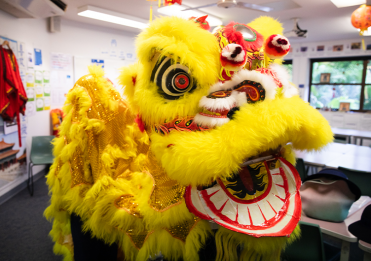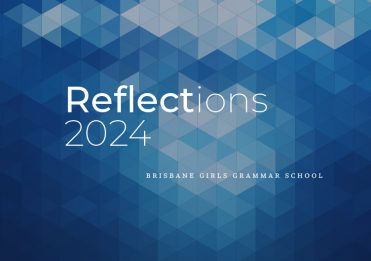The study of languages is deeply embedded in Girls Grammar’s history; it was one of the five foundational subjects offered by the School when it first opened its doors in 1875. Currently, it is compulsory for students to study at least one of the School’s five languages—Latin, German, French, Chinese and Japanese—until the end of Year 9. In total, almost 1000 of our 1380 students study a language.
Traditionally, one of the intended outcomes of a broad, liberal education has been the ability to engage with and be at home in other cultures. Beyond the outcomes of being able to problem-solve, communicate, negotiate and trade with people from around the world, a new language allows the learner to understand differing cultural behaviours.
At Girls Grammar, languages are taught from positions of empathy, acceptance and understanding of the ‘other’. Students gain not only an academic appreciation for the history and traditions of different nationalities, but a personal insight into the world view of people who are at once the same as and different from themselves.
As curriculums and cultural thought change, the ability to speak and interpret multiple languages retains its importance, although the reasons behind maintaining this skill may change. The mechanics of how we learn are informed by our reasons for studying, which change depending on national curriculum agendas, global politics, and social norms and expectations.
With the introduction of the new curriculum in 2019, the assessment of language skills will no longer be strictly divided into the four traditional instruments of Reading, Writing, Listening and Speaking. Students will be expected to respond to multiple stimulus items—for example, a video, an email message and some printed text—to draw an overall meaning. This intertextual assessment activity more authentically represents the ways that we interact with language in daily life.
An authentic, and ever more natural, connection with language is something that Girls Grammar seeks to encourage in all students, in the hope that they will be comfortable discussing and asserting their opinions and world views with people from around the world.
Diverse experiences: our Affiliate Schools
Putting language skills to work in the ‘real world’ makes the language a living, and not simply an academic, entity. This is why our involvement with international Affiliate Schools is so important. The complexity of people’s lived realities, their stories in their countries, schools and homes on the other side of the world, can ‘inspire reflection and action’, and ensure the academic pursuit of learning a language becomes a cyclical process of ‘learnings and social interventions’ that can benefit students as individuals and also influence their community (Suzuki & Mayorga, 2014, p. 19).
The International Studies Faculty offers students in Years 10, 11 and 12 the opportunity to visit and study at one of our international Affiliate Schools, located across four countries. By interacting with similar-age native speakers in France, Germany, Japan and China, students enter the melting pot of language and cultural immersion in a realistic context, extending language learning beyond the borders of the School, and communicating in new and sophisticated ways.
The inherent diversity of our languages program is enhanced when we welcome overseas students into our school community.
Overseas students visit Girls Grammar, and seek to align their linguistic and cultural knowledge of Australian English. These experiences are profoundly challenging, but benefit the determined learner incalculably.
Recently, students from Girls Grammar hosted visiting students from our French Affiliate School, Lycée St Paul, Angoulême. Staff and students had a wonderful time learning about each other and another corner of the world.
‘Hosting a French billet was one of the most enjoyable experiences I have had while at Girls Grammar. We had lots of fun going to the beach and showing her around the city. It was interesting to talk about the differences in our cultures and where we lived. We were constantly comparing our daily routines and school life.’—Tomris Ercan (11H)
“Hosting my billet was an extremely positive experience. As I taught my student about life in Australia, I learned about living in Angoulême. Despite him finding vegemite more of an acquired taste, I found that there were many similarities between teenagers from opposite ends of the world: the same TV shows, music and pop-culture were shared between people from two very different places. It was an extremely educational few weeks, linguistically and socially, and I doubt that I will ever forget this experience.’—Georgia Power (11O)
References
Suzuki, D., Mayorga, E. (2014). Scholar-activism: A twice told tale. Multicultural Perspectives, 16(1), 16–20.




